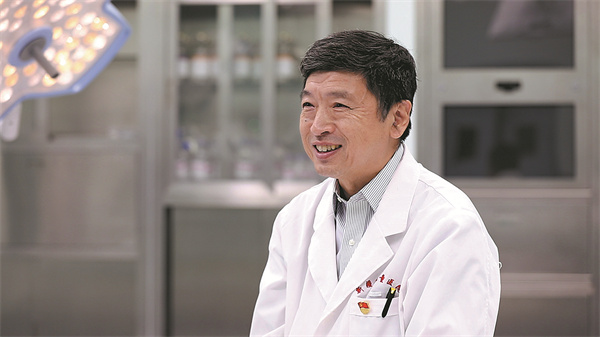

"He will consider the pros and cons of performing surgery. When it is necessary, he will always think carefully about the best timing," Li says. "He also takes into account the psychological status of the patient."
Sun says that he has learned a lot from his predecessors, including Zhang Jinzhe, an academician at the Chinese Academy of Engineering, and Huang Chengru, who, together with her students, established the department of urology in Beijing Children's Hospital in 1972, one of the earliest specialist pediatric urology centers in China.
"We used to call Zhang Jinzhe Zhangtou (boss Zhang), and whenever you had a problem, you could call him for help and he would come, no matter where he was," Sun says. "He showed us that a doctor should be on call 24/7.
"It made me realize that, as doctors we should not only strive to be the best we can be, but should also nurture the doctors of the future," Sun says.
Called Suntou by his colleagues now, Sun thinks it's not just about training the young doctors how to perform surgery, but also when to operate. "They should know whether the operation should be done or not. If it's necessary, what the consequences may be, and when the consequences occur, how to correct them. Also, they should be aware under what circumstances that surgery is not an option," Sun says.